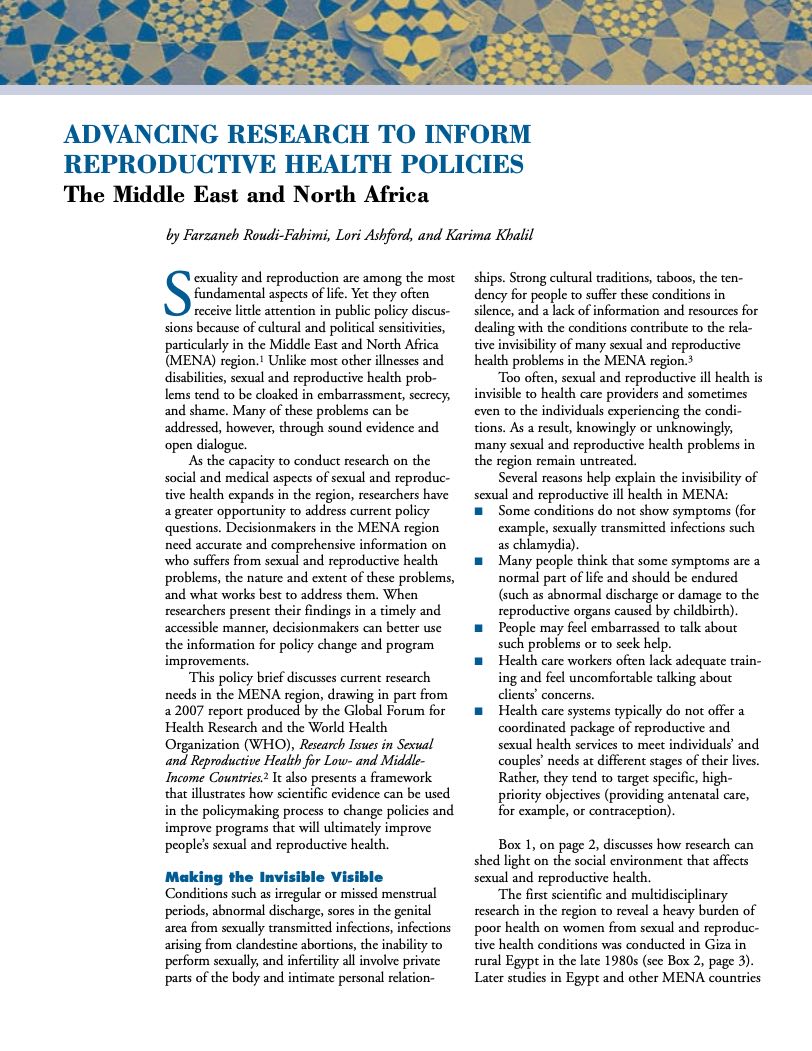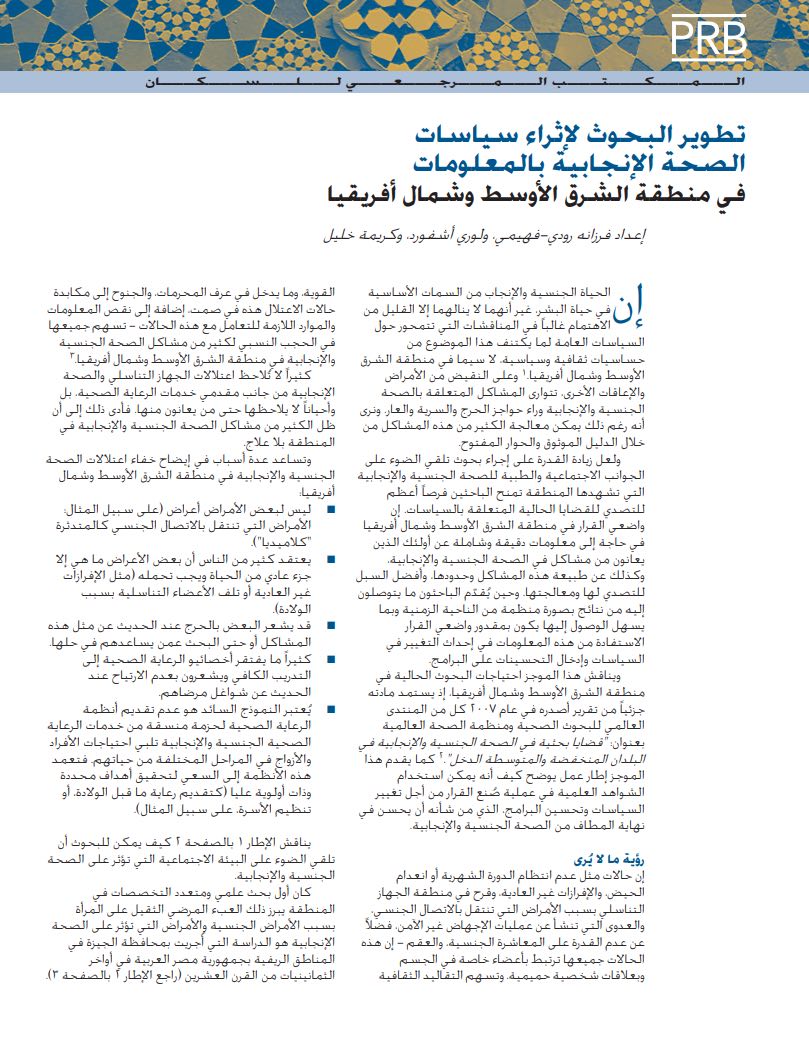
Advancing Research to Inform Reproductive Health Policies in the Middle East and North Africa
Product: Policy Brief
Author: PRB
Date: July 31, 2008
(July 2008) Sexuality and reproduction are among the most fundamental aspects of life. Yet they often receive little attention in public policy discussions because of cultural and political sensitivities, particularly in the Middle East and North Africa.
As the capacity to conduct research on the social and medical aspects of sexual and reproductive health expands in the region, researchers have a greater opportunity to address current policy questions. Decisionmakers in the MENA region need accurate and comprehensive information on who suffers from sexual and reproductive health problems, the nature and extent of these problems, and what works best to address them. When researchers present their findings in a timely and accessible manner, decisionmakers can better use the information for policy change and program improvements.
This policy brief discusses current research needs in the MENA region, drawing in part from a 2007 report produced by the Global Forum for Health Research and the World Health Organization, Research Issues in Sexual and Reproductive Health for Low- and Middle-Income Countries. It also presents a framework that illustrates how scientific evidence can be used in the policymaking process to change policies and improve programs that will ultimately improve people’s sexual and reproductive health.
This policy brief was written by Farzaneh Roudi-Fahimi, program director for the Middle East and North Africa program at PRB; Lori Ashford, program director, policy communications at PRB; and Karima Khalil, consultant in reproductive health. This work has been funded by the Ford Foundation office in Cairo.

 ">
">
 ">
">